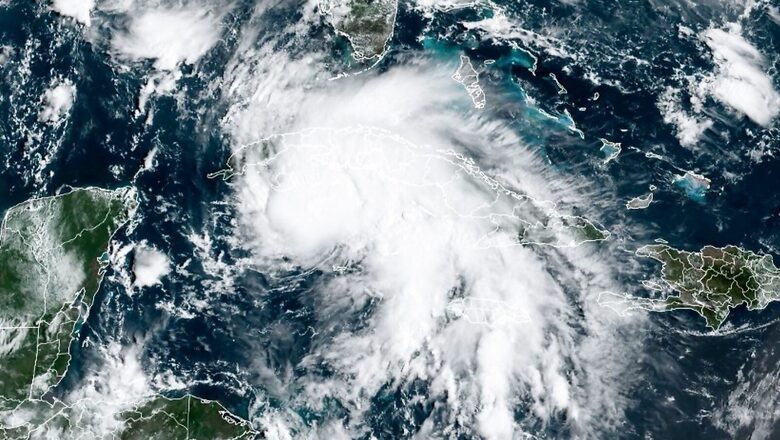
views
Storm Ida has strengthened into a hurricane as it barrels through the Caribbean toward the US Gulf Coast and could hit the southern United States as a major hurricane, forecasters said Friday.
“Ida has strengthened to a hurricane” with maximum sustained winds of 75 miles (120 kilometers) per hour, the National Hurricane Center (NHC) said, adding Cuba was already experiencing tropical storm conditions.
The Cuban government had issued hurricane warnings earlier Friday in the Isle of Youth and several western provinces as Ida gathered strength as it bore down on the island.
The NHC said “life-threatening heavy rains, flash flooding and mudslides” were expected to hit western Cuba, Jamaica and the Cayman Islands on Friday.
The center warned that Ida “is expected to be a dangerous major hurricane when it reaches the northern Gulf Coast on Sunday.”
A hurricane watch is in effect in New Orleans — which was devastated by Hurricane Katrina in 2005 — with “an increasing risk of dangerous hurricane-force winds beginning Sunday along the portions of the coasts of Louisiana and Mississippi,” the NHC said.
“Potentially devastating wind damage could occur where the core of Ida moves onshore,” it added, noting it is likely to produce heavy rainfall and “considerable” flooding from southeast Louisiana to coastal Mississippi and Alabama.
New Orleans officials issued a mandatory evacuation order for areas outside the levee system that protects the low-lying city.
“Now is the time for Louisianans to get prepared,” tweeted the state’s governor John Bel Edwards, calling on residents to “make sure you and your family are ready for whatever comes.”
US atmospheric scientist Matthew Cappucci tweeted that “at this point it’s reasonable for coastal Louisiana to prepare for the potential of Category 4+ impacts.”
That level is the second-highest on the Saffir-Simpson hurricane wind scale.
“A major hurricane is basically a lock. And, given there aren’t many ‘outs’ for this storm to fail, it’s tough to not see it overachieving.”
Last week, a rare tropical storm struck the US northeastern seaboard, knocking out power to thousands of Americans, uprooting trees, and bringing record rainfall.
Scientists have warned of an rise in the number of powerful cyclones as the ocean surface warms due to climate change, posing an increasing threat to the world’s coastal communities.
Louisiana is frequently hit by major storms. New Orleans remains traumatized from Katrina in 2005, which flooded 80 percent of the city and killed more than 1,800 people.
Read all the Latest News, Breaking News and Assembly Elections Live Updates here.

















Comments
0 comment